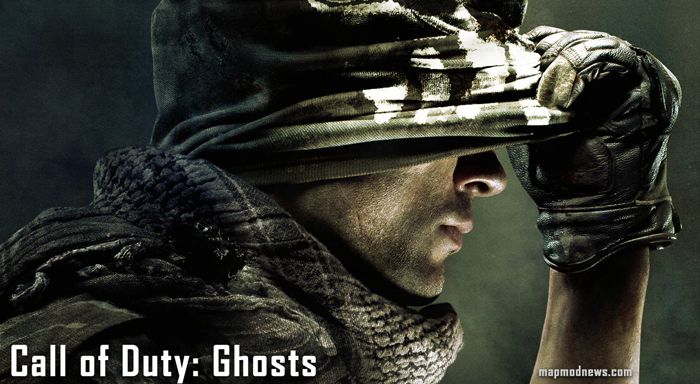Last week, I wrote about how companies - and investors - can benefit from corporate breakups. I've never claimed to be clairvoyant, but in this case my timing was incidentally prophetic.
 (Rudebaguette.com)
(Rudebaguette.com) On Friday, a fantastic example of corporate breakup-for-value occurred when French conglomerate Vivendi SA (EPA:VIV) announced that it had sold its videogame giant Activision Blizzard (NASDAQ:ATVI) in an $8.17 billion deal.
Vivendi began as a simple water utility company back in the 1800s, but bloomed into one of the most diversified companies of all time. This multinational mass media and telecommunications company has owned everything from Chivas Regal whisky to African and Brazilian phone networks.
Activision Blizzard is the world's second-largest gaming company by revenue, following Nintendo (OTCMKTS:NTDOY).
It's no wonder - even non-gamers have likely heard of one or two of these Activision Blizzard franchise titles: Call of Duty, Warcraft, Starcraft, Diablo, Skylanders, Cabela's hunting games, Guitar Hero, Crash Bandicoot, and Spyro the Dragon.
Why the split?
Back in 2007, Activision merged with Vivendi's games division, which included Blizzard Entertainment, in an $18.8 billion deal.
Since then, the two companies have appeared quarrelsome over various management issues, mostly income based on ownership stake.
Money Morning's Chief Investment Strategist Keith Fitz-Gerald explains that corporate breakups make sense "when you've got uniquely identifiable business segments that are growing faster than their peers. Vulnerable or less-profitable divisions are budded off. Absent all the weight or drag on earnings, the other divisions can perform more profitably."
That definitely sounds applicable to Vivendi. The split could provide more cash flow and flexibility to the conglomerate giant.
In fact, Vivendi Chairman Jene-Rene Fourtou has said his goal is to focus the company and eliminate the "conglomerate discount" that has weighed on Vivendi's shares.
Keith further highlights that companies ripe for splitting are ones with liability management issues, like pending litigation against a specific division, or with particular product units, lines, and divisions that just aren't performing.
Examining Keith's reasoning above, the move may indicate that Vivendi is projecting vulnerability in its gaming division, perhaps due to a massive migration from console into mobile gaming.
In turn, Activision Blizzard likely seeks independence from its corporate taskmaster.
Over the years, Activision Blizzard has experienced much success; reports indicate that the gaming company has been unhappy as Vivendi sought ways to increase cash flow for itself via its ownership stake in Activision Blizzard.

And so Activision Blizzard will unshackle itself by purchasing 429 million of its shares for $5.83 billion.
Additionally, an investor group headed by Activision Blizzard CEO Bobby Kotick and Co-Chairman Brian Kelly is throwing in $2.34 billion to nab 172 million more shares.
As a result, Vivendi's stake will plummet from a 61% to 12%.
How will the corporate breakup affect investors?
Here is what investors need to know about the Vivendi - Activision Blizzard split...
Keith had this to say about how corporate breakups can benefit - or hurt - investors:
"Many times there is a breakup premium attached to a stock when assets are worth more than the sum of their parts. The same is true of revenue streams that are suddenly freed of costs that belong to other divisions or products.
"Conversely, if a breakup goes badly, that's usually because investors find problems that weren't apparent when the entity was held whole."
Vivendi Chief Financial Officer Phillippe Capron said this of the breakup: "It was a complex negotiation. This generates a lot more cash, and creates more flexibility for Vivendi, even if it means we're giving up our majority position within the company."
In fact, Vivendi appears to be spinning off other divisions as well. For instance, negotiations to sell its 53% controlling share in Emirates Telecommunications Corp. for $5.6 billion are already underway.
In the days following the announcement of the corporate breakup, Vivendi stock saw some volatility and dropped by about a dollar a share to a low of $15.90 per share. Since then, it's been steadily recovering, and now sits at $16.10.
In the meantime, Activision Blizzard shares hit a four-year high on Friday, going up 15% to $17.46. On Monday, it closed at $18.27.
"This transaction represents the best possible outcome for Activision shareholders," BMO Capital Markets analyst Edward Williams said to investors.
Activision Blizzard chief financial officer Dennis Durkin highlighted the company's earnings and domestically generated cash. The company stated it expects to report earnings of 28 cents a share on $1.05 billion in sales.
The big worry for Activision Blizzard is the massive amount of debt the company is taking on.

(World of Warcraft)
However, the corporate breakup gives the company a strong, unified vision, now absent management disputes and uncertainty.
Clearly, investors like the split so far based on market moves, especially for Activision Blizzard.
Vivendi is still a work in progress as it continues to rid itself of particular divisions, but these are two companies to watch in the coming months.
Need top-notch investing advice? Check out Money Morning's Global Investing & Income Strategist Robert Hsu's latest on how to get world-beating returns in your income portfolio here...
Related Articles and News:
- Money Morning:
Four companies that'd benefit from corporate breakups - the last one may surprise you! - Money Morning:
Potential Candy Crush Saga IPO looks sweet - WSJ:
Vivendi starts to slim down - Reuters:
Activision to spread its wings after Vivendi sale: CEO - Ars Technica:
Activision pays $8.2 billion to free itself of parent company Vivendi


